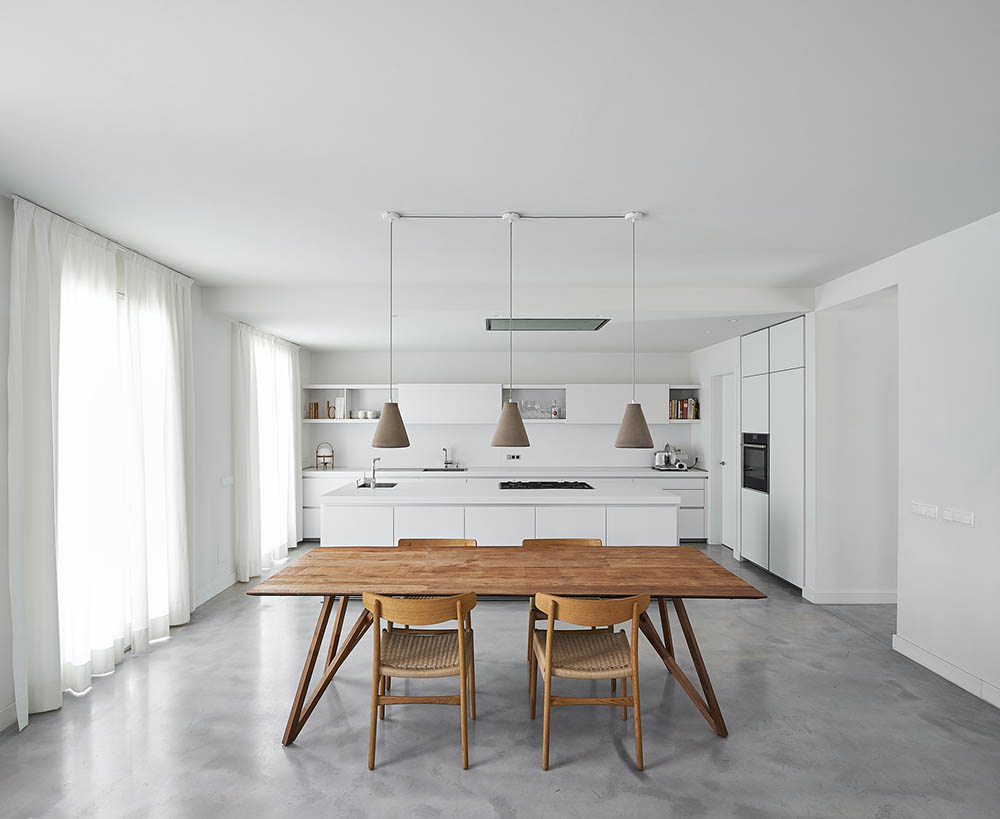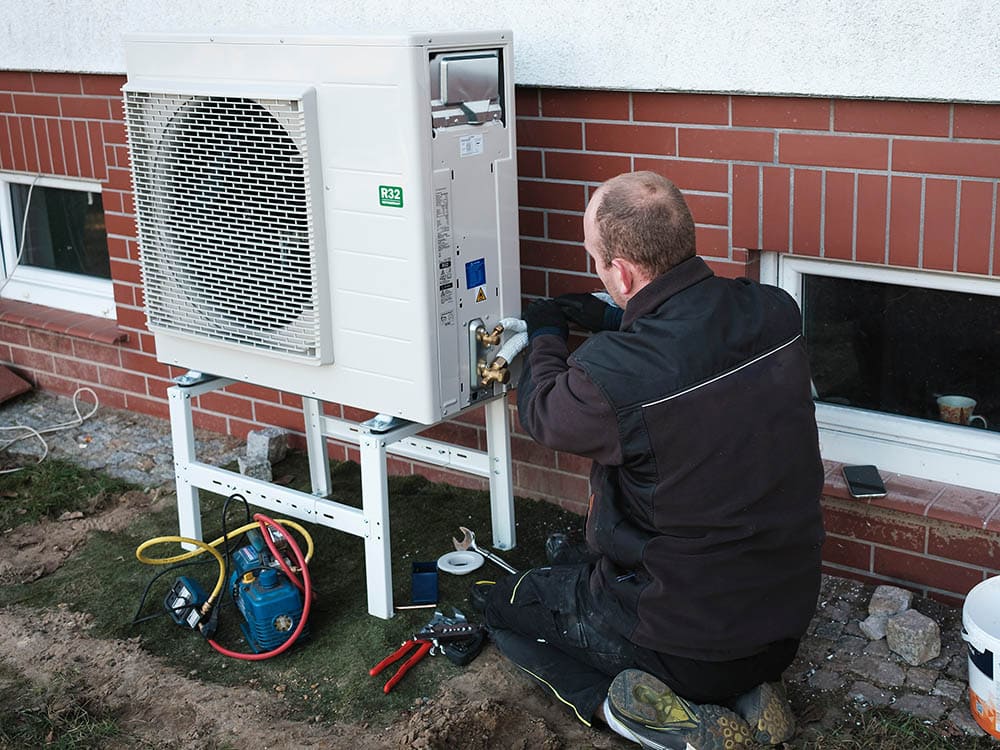When Should I Buy a House? 7 Things to Consider (2025 Guide)
-

- Last updated:

Thinking about buying a house and moving in? That’s great news, but before you do that, there are certain things to consider. Is it really the time for such a big step? Do you have a big enough down payment? There are no small matters when buying a house. So, when should you do it? Only when you’re 100% ready!
All this financial terminology can be a lot to take in, and that’s exactly why we wrote this guide! Here, we’ll help you learn whether you do, indeed, need to buy a new house or not. The more you know, the easier it will be to make the right decision and find the best bang for your buck!
The 7 Things to Consider When Buying a House
1. Make Sure You Don’t Have Any Big Debts
Most working people in the US have some sort of debt to pay, like a credit card debt or a student loan. So, it all comes down to how well you’re doing on this front. If you’ll be able to pay off all the debts shortly, that means you’re ready to start saving for a house. On the other hand, if the debts are “breathing down your neck”, spending any extra money you have on a house will be a bad idea.
And remember: the higher the debt, the more expensive the loan will be, as the company won’t give you the best interest rates available. Speaking of interest rates, what kind of a deal can you expect to get? For that, use a mortgage calculator. Just enter the home’s value, your down payment, and loan amount, and the calculator will figure out the rest.

2. Get Your Credit Score in Order
The better the credit score, the easier it will be to get a home loan—that’s another thing to remember. If you’re fresh out of college and are just starting to work at your first job, your credit score will be rather low. This is true across the country and for all majors. What’s the best way to improve the credit score, then? To keep paying for that debt, of course.
Don’t miss any “deadlines”, and that will be the best proof that you’re a reliable borrower. In most cases, a credit score of 620 allows you to get a loan.
3. Large Down Payments
So, you’re slowly but steadily paying off debts and improving your credit score. Next, you need to have a down payment to be eligible for the mortgage. We’ve got good news: these days, a 3% down payment on a conventional loan is enough to get a mortgage. And if it’s an FHA loan, they’ll ask for a 3.5% down payment. Back in the day, the minimum initial payment had to be at least 20%.
In some states, a clean credit score gives access to USDA and VA loans even if you don’t have a down payment to make. With that said, a large deposit isn’t always a bad thing. For example, if you save up enough money and make a big down payment (again, 20%), you won’t have to pay for private mortgage insurance, which can be as high as $2–3K, or more.

4. The Source of Income Comes Next
To make regular mortgage payments, you need to have a steady source of income. Without one, you shouldn’t even think about buying a house. Lending companies pay attention to your income as well. If it’s reliable, they’ll be happy to loan a substantial amount of money. Have you heard about the DTI?
It stands for the debt-to-income ratio, and it’s widely used by lenders. It helps them figure out whether you can manage monthly payments and should get a loan or not. Now, a DTI that’s lower than 50% is a decent place to start. But there are no 100% rights or wrongs here—it all depends on the lender.
5. Do you Need More Space or Not?
This is the main reason why people want to buy a new house. Yes, the lack of space is a big issue, but it might not be a concern for you. Ask yourself: are you dreaming of an extra bedroom, a basement, or maybe a larger kitchen? If you’re happily married and have children, the answer to all these questions is, most likely, going to be yes. In contrast, for single people, a new house isn’t mandatory.

6. Are You in for the Long Run?
Unless you make six figures, that mortgage will take at least 15–20 years to pay for, or even longer. That’s why you have to be sure you’re ready to commit for that long. Sometimes, people get bored of the scenery and decide to move to a different city/state. Others lose their jobs because of the economy or decide to switch their careers. Don’t have a steady income and prefer the “nomad” lifestyle instead of settling in?
Then you’re not ready to buy a house yet! You need to know for sure that you’re not going to lose that income for at least a year or two to confidently commit to a mortgage.
7. Extra Costs: Are You Ready to Cover Them?
Renting and owning a house are two entirely different things. If this is going to be your first experience living in your own house, there are certain expenses to cover. First, we’re talking about the utilities: electricity, heating, water, sewage bills, and more. Maintenance is another big “burden” that landlords handle.
Busted pipes, a broken heat pump, and sagging doors are some of the things that you’ll have to take care of from now on. And then there’s the insurance (it usually costs $100–150 a month) and property taxes (the cheaper the house, the less you’ll have to pay, and vice versa). Also, we highly recommend having an emergency fund that can get you going for at least 2–3 months.


DIY vs Hiring a Real Estate Agent
You can always check a dozen of available homes on your own (or with your family members). The laws don’t obligate potential buyers to work with real estate agents. Still, for an inexperienced buyer, it can be pretty hard to find a perfect house and land a perfect deal. That’s when the agents come in. On average, they charge 5–6% of a home’s sale price, and that’s a fair deal.
Q1 vs Q4: What’s the Right Time to Buy a House?
Most real estate companies will advise you to make a purchase in the first quarter. The reason: early in the year, the prices are usually lower than in Q2, Q3, and Q4. That’s because people don’t usually buy houses in January or February. So, if you’re on a tight budget, winter is your best friend. Spring, in turn, is the worst time for this, as the number of potential buyers rises exponentially.
Summer is still “hot”, but not nearly as busy as spring (meaning you’ll get a better deal). Finally, fall is the next best thing after winter and will give you lots of room for negotiating a fair price. Keep this info in mind, and you’ll be able to save quite a lot while getting the same house.

The Rent-to-Own Concept: What’s it all About?
Can’t seem to decide which house you want to buy? Then why not go with a rent-to-own agreement? This term is used to describe a situation when a potential buyer rents the house for a predetermined period with the option/mandate to buy it later. Yes, it’s an opportunity to live in the house for a while to figure out whether you want to purchase it or not. There might be some risks involved, but this is still something to consider.

Conclusion
Buying a house is no small task, and it can be quite daunting, especially when you don’t know what to do and where to look. New houses aren’t particularly cheap, which is why it’s so important to know in advance how to get ready for this big step. Do you hire an agent, or do everything yourself? Is fall the best time for buying a house or not?
How do you boost your credit score? These are just some of the questions that we answered today. And we’re confident that with the help of this guide, you’ll be able to figure out the perfect time to buy a new house. Create a budget, save enough for a down payment, and go from there!
See also: What Is A First Time Home Buyer Program? Everything You Need to Know!
- How do Realtors get paid?
- Mortgage Calculator
- 620 Credit Score: Is it Good or Bad?
- Credit score requirements to buy a house: Guide
- Down Payment
- The Mortgage Reports
- What is a debt-to-income ratio?
- How to buy a house in 2022
- The Best Time Of Year To Buy A House
- How To Determine If You Should Buy A House
- Buying a House in 2022: What to Expect
- 10 Consumer Spending Statistics and Facts – 2022 Update
Featured Image Credit: Olha Povozniuk, Shutterstock
Contents
